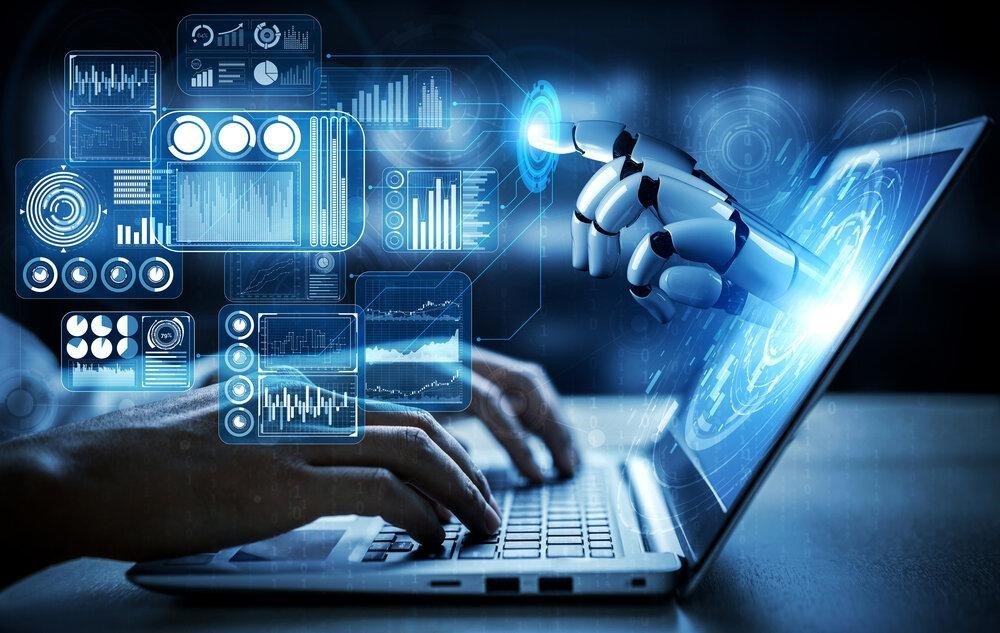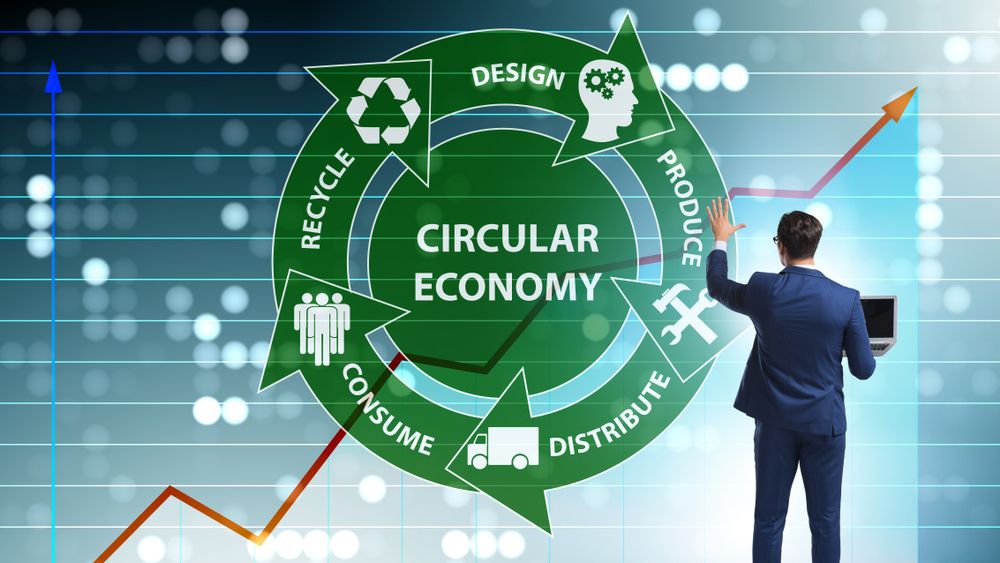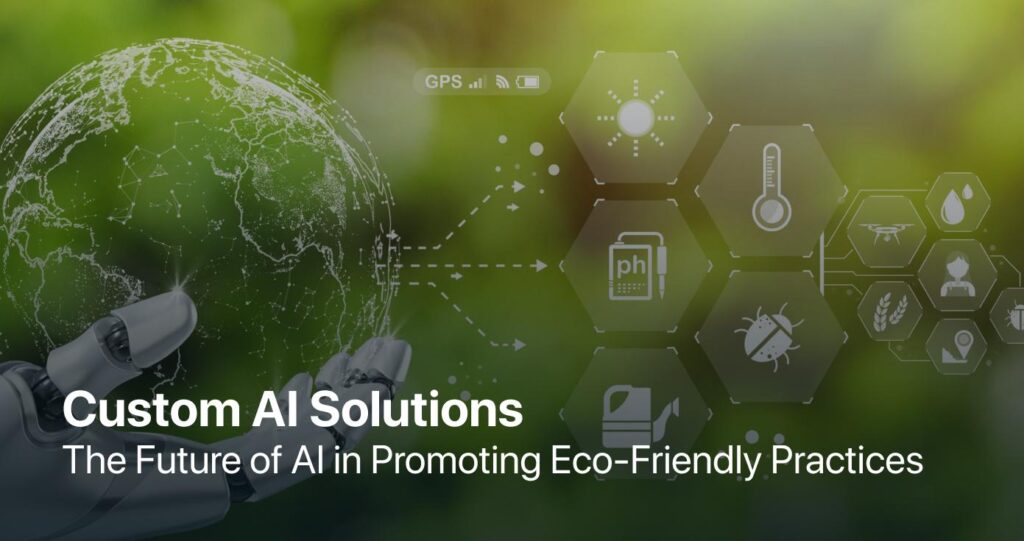
Over the last few years, Artificial Intelligence (AI) has been considered as one of the major topic of conversation and has also reached new heights. From self-driving the cars to personalised shopping experience, artificial intelligence is changing the way we live and work. You would likely be surprised to learn that artificial intelligence is also an important consideration in sustainability. Furthermore, AI aims to improve society and make life easier and better.
What is AI, and Why Should We Care About It in Sustainability?
Before looking into the ways through which AI promotes sustainable decision-making, let’s briefly review the definition of AI. AI is, to put it simply, a machine’s capacity to replicate the thought processes of humans (or we can say human intelligence). This includes making decisions, analyzing trends, and learning from data. Even while it seems slightly technical, the interesting thing is how these talents may be used to address some of the biggest environmental challenges currently facing the world at large.
Making decisions that are ethical and sustainable is more important than ever in the current era when issues like biodiversity loss, resource depletion, and climate change are major challenges. And here is where artificial intelligence (AI) comes into play, providing innovative approaches that were previously incomprehensible.
AI: The Game Changer in Resource Management
Resource management is one of those fields where AI thrives the most. Analyze how much energy, water, and raw materials are used on an everyday basis in sectors such as industry, energy, and agriculture. Imagine what a difference it would make to the environment and waste if we were capable of handling these resources more effectively. Thus, this is made possible by AI.
For example, artificial intelligence (AI) technologies, assist farmers in determining the exact amount of water, fertilizer, and pesticides required for their crops. A precise farming method that conserves resources and lessens its impact on the environment is the replacement for guessing and excessive use. In a similar vein, AI aids in energy management by assisting in the prediction of energy demand and the optimization of energy distribution, which reduces waste and carbon emissions.
Predicting the Future: AI’s Role in Planning for Sustainability
How about, if you get the chance of predicting future environmental challenges and also take precautions before they become big problems? This is what AI does for you. Artificial Intelligence (AI) can identify trends and anticipate possible hazards by examining a huge amount of past data.
For example, AI can forecast the potential effects of climate change on a certain area, including changes in agriculture production and increasing sea levels. Following that, companies and governments could use these insights to make plans that will guarantee the durability and adaptability of their strategy.
The Circular Economy: Closing the Loop with AI

Resource reuse, refurbishment, and recycling are among the primary methods that a circular economy strives to reduce waste. This is made possible in large part because of AI. It is capable of tracking materials over the course of their lives to guarantee optimal utilization.
AI helps organizations in manufacturing by allowing them to track product usage and condition in real time. Thus, they may save resources and cut down on waste by anticipating when a product will need to be recycled or reconditioned. Closed-loop supply chains, which continually reuse products to minimize the demand for new resources and lessen environmental effect, are yet another innovation that is supported by AI.
Environmental Monitoring: AI as the Guardian of Our Planet
Artificial intelligence (AI) is making environmental monitoring more easier and more productive, which is essential for conservation efforts. Furthermore, artificial intelligence (AI) is enabling us to do new environmental protection tasks, such as monitoring wildlife populations as well as tracking deforestation.
Artificial intelligence-enabled drones are capable of monitoring large areas of forest, identifying instances of illegal harvesting and evaluating the condition of ecosystems. It is also used in marine conservation to track animal migration, measure ocean temperatures, and even identify illegal fishing. We can protect the environment for future generations by using more effective conservation measures which is made possible by this real-time data.
Building Smarter Cities with AI
The growing population in cities makes sustainable urban planning more essential. AI is assisting in the development of smart cities, which are metropolitan regions that make use of technology to boost productivity, cut decrease resource usage, and improve the quality of life.
Traffic flow may be optimized using AI, which lowers pollution and congestion. Additionally, it may aid in controlling building energy usage, guaranteeing effective resource utilization. Cities may become more sustainable by lowering their environmental impact and raising human standards of living by incorporating AI into urban planning.
Challenges and Ethical Considerations
Of course, AI has its own set of difficulties and moral dilemmas, just like any other great weapon. To begin with, artificial intelligence (AI) demands a lot of energy and processing power, which might increase carbon emissions. Make sure AI has more positive effects on the environment than negative ones.
The issues of accountability and transparency are also significant. Data is used to make AI judgments, and if that data is biased or lacking, the results may not be as fair or sustainable as originally anticipated. Developing open, moral, and inclusive AI systems is essential.
Furthermore, there is a chance that jobs might be lost as a result of AI’s task automation, especially in manual labour-intensive industries. Because of this, it’s critical to think about how AI will affect society and to create plans that will help employees move into new positions.
Looking Ahead: The Future of AI in Sustainability

We are now simply beginning to investigate the vast possibilities of artificial intelligence in sustainable decision-making. Artificial Intelligence (AI) will play a bigger role in sustainability initiatives as technology develops, enabling us to overcome obstacles that were before unattainable.
But we need to use precaution when implementing AI if we want technology to promote sustainable development. We can make sure that AI promotes an improved and sustainable future for all people by placing a high priority on accountability, transparency, and inclusion in addition to assisting us in achieving our environmental goals.
Thus, it’s important to pay attention to how AI will impact sustainability in the future, whether you’re a business leader, a policymaker, or just someone who wants to do better for the planet. The world we leave for future generations may be significantly impacted by the choices we make today, driven by AI.

